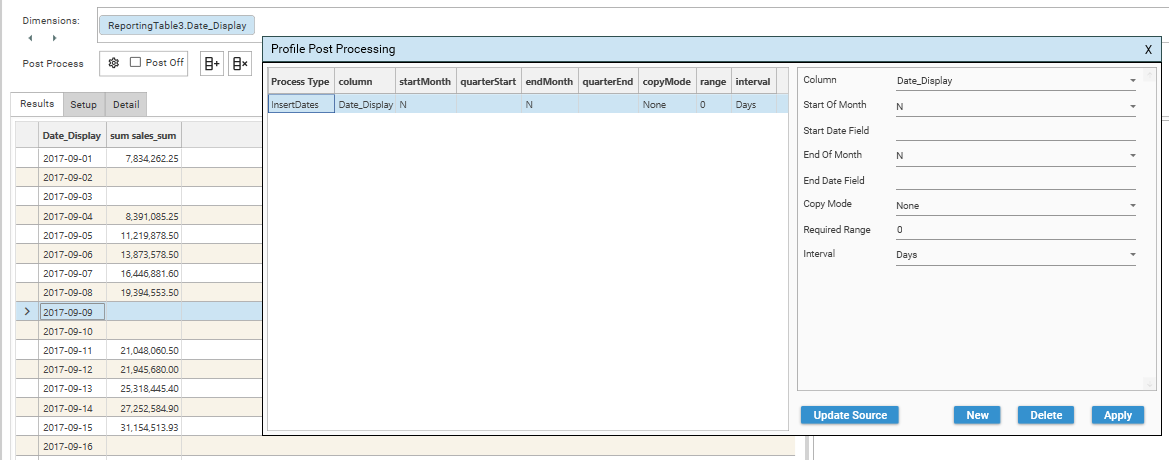Inserts missing dates (and rows) into a time-based result set or extends result set back or forwards in time
Purpose
Use this function to:
- Create consistent time-series data in sparse or sporadic data sets
InsertDates is a flexible and powerful function that can significantly alter MFP results and affect all other post-processing. Please be sure to develop analyses that use this functionality in stages as it is easy to specify a configuration that prevents post-processing from running.
If the report won’t run, try turning off Post Processing to see the raw results that are being fed to the post-processor.
Be mindful when sharing reports generated using InsertDates that the intended audience has appropriate transparency of how the report was calculated.
- InsertDates is often used in conjunction with MissingValues.
- InsertDates will over-ride any row limits set using Multi-Function Profile Options
- If the Date Dimension field in a Multi-Function profile is switched out for another field, remember to update any InsertDates of FormatDate processes that were accessing the old field.
Parameters
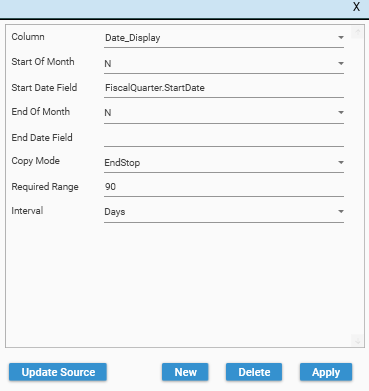
| Parameter | Description |
|---|---|
| Column | Required. The Date Column in which to insert dates. Must be a date field, or "first date error" will be generated. |
| Start of Month | Required. N / Y
|
| Start Date Field | Optional. Only used if [Start of Month] = Y. Must be in format [Table].[Field] If [Start Date Field] = ““ InsertDates column extends back to first day of first month of raw result set. FirstDate=19/02/2019 , [Start Date Field] = "" InsertDates extends back to 01/02/2019 If [Start Date Field] = [linkedtable].[discretedatefield], InsertDates column extends back to the closest date in [linkedtable].[discretedatefield] that is earlier than first date in raw result set. FirstDate=19/02/2019 , [Start Date Field] = "[Tab].[Dates]" [Tab].[Dates] = 06/02/2019, 13/02/2019, 20/02/2019... InsertDates extends back to 13/02/2019 [Start Date Field] must refer to a DISCRETE DATE TIME FIELD in a table that is linked to the Multi-Function Profile dimension table. |
| End of Month | Required. N / Y
|
| End Date Field | Optional. Only used if [End of Month] = Y. Must be in format [Table].[Field] If [End Date Field] = ““ InsertDates column extends forward to last day of last month of raw result set. LastDate=19/02/2019 , [End Date Field] = "" InsertDates extends forward to 28/02/2019 If [End Date Field] = [linkedtable].[discretedatefield], InsertDates column extends forward to the closest date in [linkedtable].[discretedatefield] that is later than last date in raw result set. LastDate=19/02/2019 , [End Date Field] = "[Tab].[Dates]" [Tab].[Dates] = 13/02/2019, 20/02/2019, 27/02/2019, 06/03/2019... InsertDates extends Forward to 27/02/2019 [End Date Field] must refer to a DISCRETE DATE TIME FIELD in a table that is linked to the Multi-Function Profile dimension table. |
| Copy Mode | Determines the values to use in rows added to the end of the raw result set. Will be applied to all columns that exist at the point when the InsertDates process is run. Does not affect any rows added to the beginning of the raw result set. None / Repeat / EndStop
Setting [Copy Mode] = Repeat is useful in generating graphs where measures stay constant after a specific date, and so the last recorded value needs to be “carried forward.” EndStop: {TODO} |
| Required range | Required. Default = 0. If 0, the number of rows to be added during post-processing is determined by [Start of Month/Start Date Field] and [End of Month/end Date Field]. If [Required Range] is less than the number of rows returned by other parameter settings, then [Required Range] will remove rows from the end of the result set. If [Required Range] is greater than the number of rows returned by other parameter settings, then [Required Range] will extend the end of the result set until the specified number of rows is reached. If [Required Range] extends the result set, [Copy Mode] will be used to determine what to do for any existing columns. [Required Range] works in conjunction with [Interval] to determine the number of rows to add to the result set. |
| Interval | Required. Days / Weeks / Months Default = Days. The interval to use when calculating required number of rows from [Required Range]. Not used if [Required Range] = 0
|
Examples
Start Of Month
If = Y, inserts records back to the start of the month of the first record in the record set.
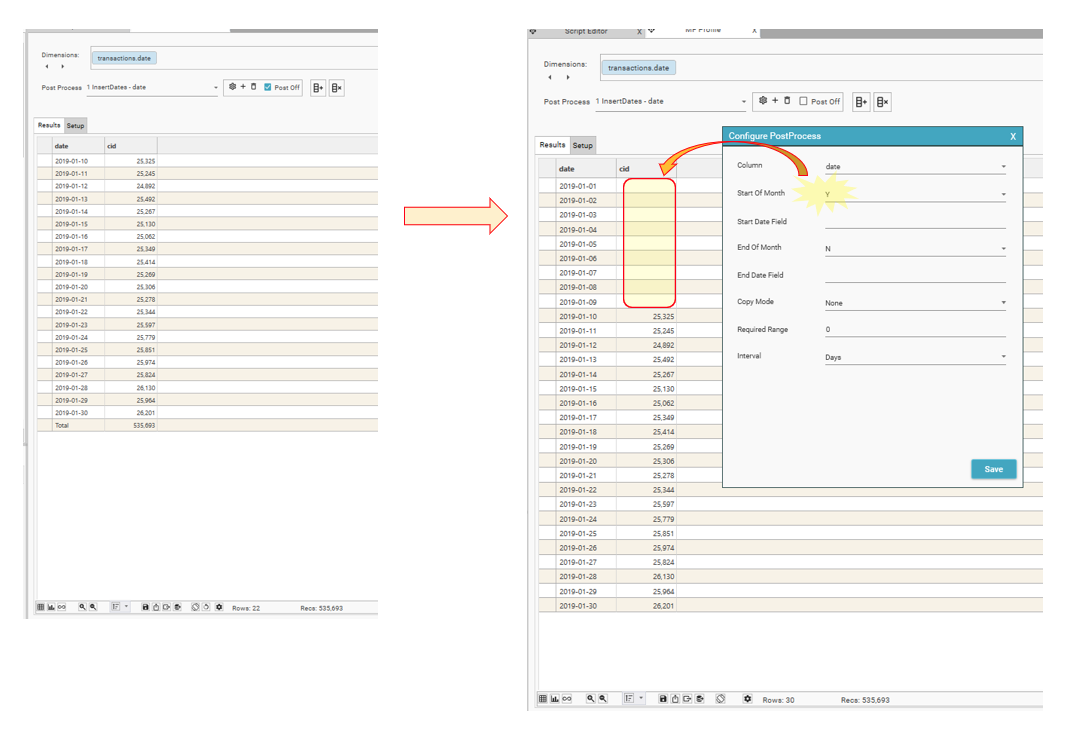
Start Date Field
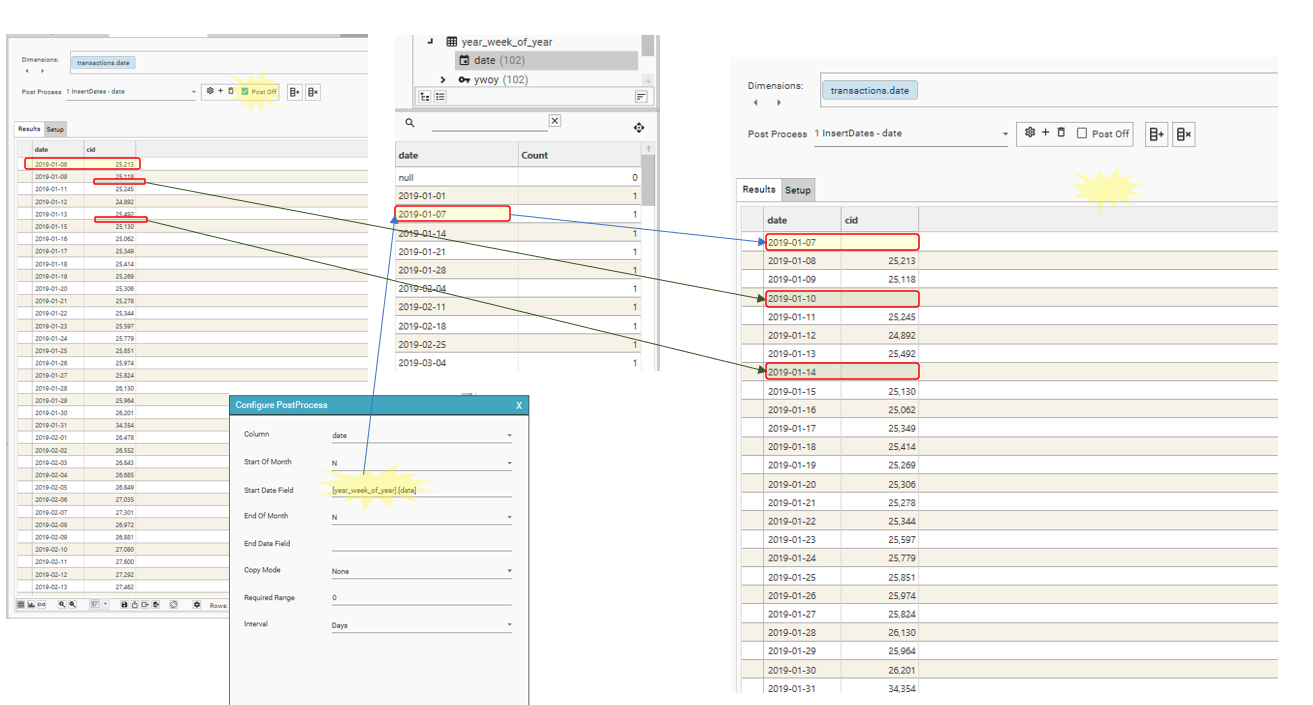
Required Range
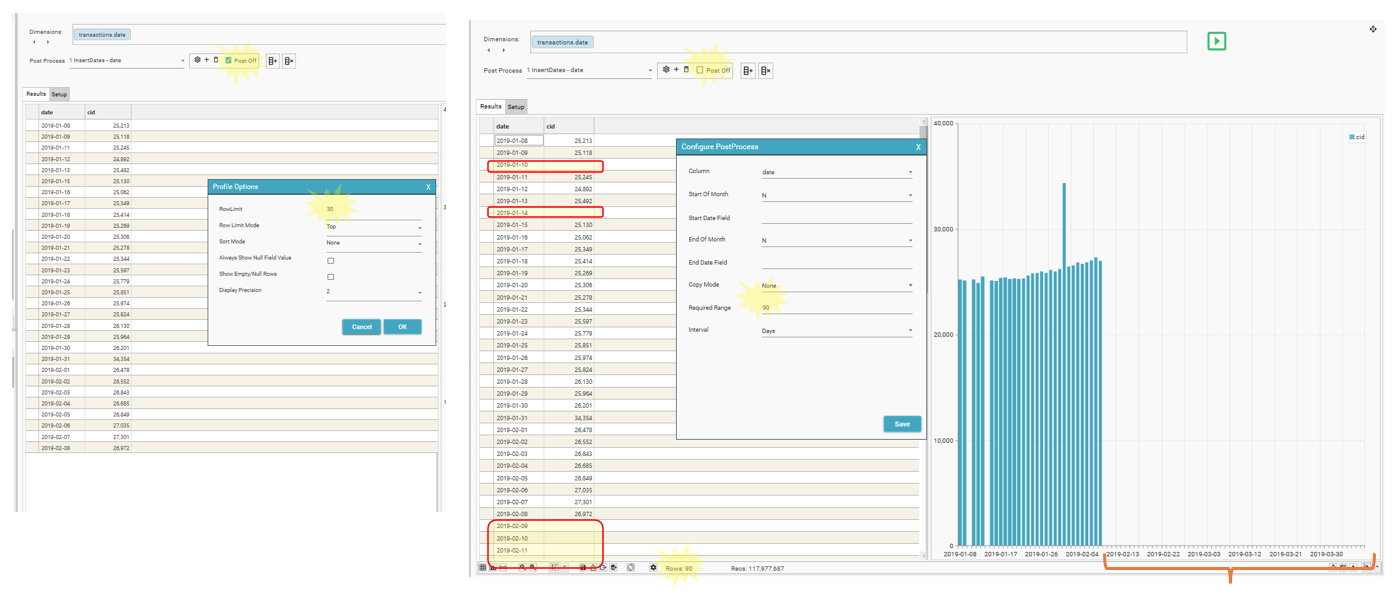
Basic Setup
Without Insert Dates

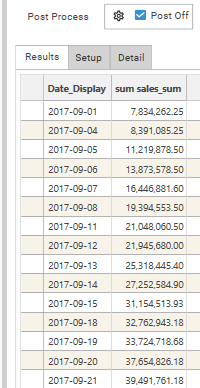
With Insert Dates
